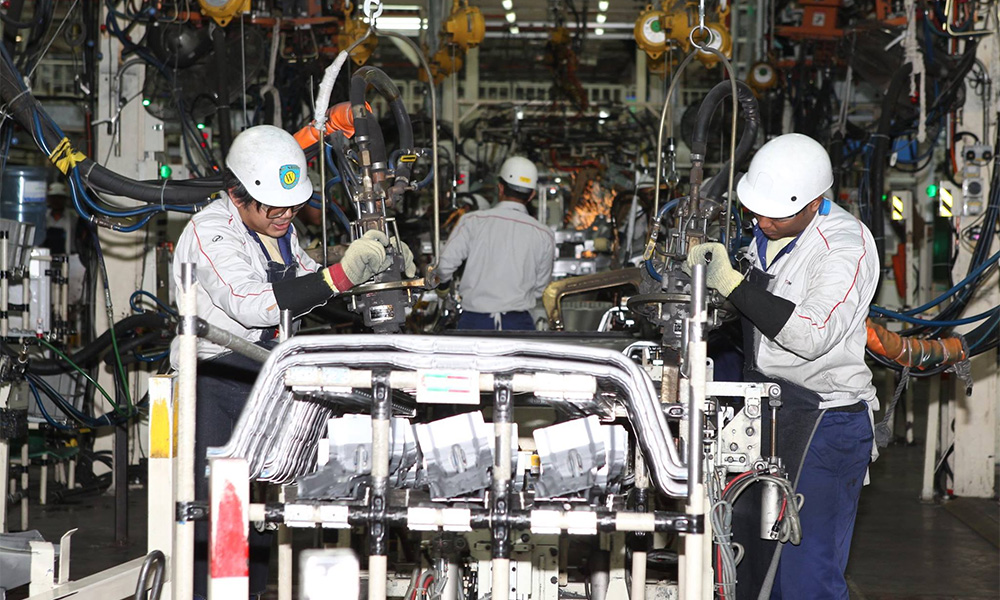LETTER | Cultivating industry-competent graduates has become increasingly crucial as the demand for diverse capabilities at workplace continues to rise.
Institutions of higher learning (IHLs) face the challenge of preparing graduates who possess the knowledge and skill sets necessary to effectively address industry challenges.
A strong foundation in mathematics, natural science, and computing among graduates cannot be overstated. These subjects are building blocks for various disciplines, including technology, humanities, and social sciences.
Additionally, future graduates are expected to develop critical thinking, be able to identify problems and provide justified solutions, communicate effectively, and collaborate within cross-functional teams. These skills are crucial and can only be acquired through systematic learning in a university setting.
In the current era of digital technologies, the evolution of artificial intelligence and associated technologies will continue to evolve in all aspects of our daily lives and industry. Therefore, future graduates must be adaptable to workplace technologies, quick to learn, adaptable to new technological advancement, and capable of effectively communicating complex technical concepts.
This skill set is essential in navigating the increasingly skills-driven landscape in the industry.

To ensure the relevance of academic curricula in response to the changing needs of the industry, IHLs should focus on developing a well-rounded curriculum that prioritises adaptability and transferrable skills. Key areas to emphasise include:
Technical skills: Provide transferrable skills across different technologies, platforms, and industries. This includes proficiency in programming languages, data analysis, and cybersecurity with holistic considerations for sustainable development.
Soft skills: Emphasise essential soft skills such as communication, collaboration, problem-solving, adaptability, and critical thinking.
Entrepreneurship skills: Incorporate elements of entrepreneurship, enabling graduates to distinguish opportunities, create and validate business ideas, and develop business plans.
Teamwork skills: Equip graduates with the ability to work in diverse and inclusive teams while fostering aptitudes in coordinating within multi-disciplinary settings.
Research skills: Provide graduates the capability and skills to conduct research and interpret data in deriving solutions or making decisions.
Lifelong learning skills: Instil the ability to undertake self-directed learning in pursuit of new knowledge, recognise the need for upskilling, able to network and adapt to new and emerging technologies.
Dedicated to the cultivation of future graduates equipped with vital knowledge, skills, and industry expertise, Universiti Tenaga Nasional (Uniten) places great emphasis on adapting to the ever-changing global and industry landscape.

Uniten understands the importance of keeping up to date with current industry trends, leading us to continuously enhance our curricula to meet the evolving demands in the fields of engineering, business, and information technology.
In our pursuit of excellence at Uniten, we ensure that our programmes are on par with those offered by world-class universities. Several strategic initiatives were implemented including appointing and engaging with esteemed academics from renowned institutions as visiting professors and enlisting experienced industry captains, both local and international, as adjunct professors.
We also ensure that industry is involved in curriculum review and sharing of experience through teaching selected part of the course and industry-based projects. This dynamic ecosystem provides our students with opportunities to immerse themselves in real-world scenarios, explore complex problems, apply theory and concepts learned in the classroom to finding solutions to real problems, and most of all, benefiting from the interaction with industry practitioners.
Core competencies
Uniten has established a strong network with many industries including Tenaga Nasional Bhd (TNB), thus enabling our students to be continuously exposed to the changing demand at the workplace and associated technologies.
Our graduates are equipped with the core competencies needed by the industry; they are empowered to adapt and excel in the workplace.
In summary, academic curriculum needs to be agile to keep up with the latest demand at the workplace and the evolution of technology.
IHLs cannot work in silos in the dissemination of knowledge and to develop core competencies, including transferrable technical and soft skills, entrepreneurship skills, and teamwork skills, and to inculcate the skills to embark on lifelong learning.
We need to work closely and foster partnerships with industry to nurture future-proof graduates.
RAMESH SINGH is deputy vice-chancellor of Universiti Tenaga Nasional (Uniten), senior professor at Universiti Malaya, and a Fellow of the Academy of Sciences Malaysia. He can be reached at [email protected]
The views expressed here are those of the author/contributor and do not necessarily represent the views of Malaysiakini.

